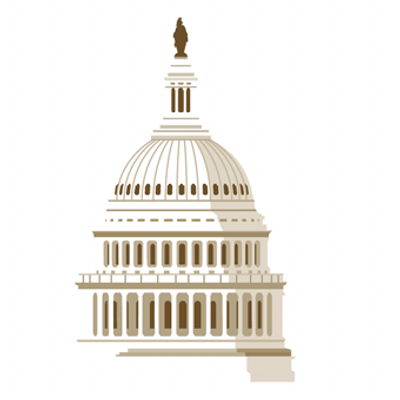Promoting Partnerships To Improve Veterans’ Health
- Home
- About NAVREF and the NPC
- Advocacy

Advocacy & Government Relations
NAVREF is an active participant in advocacy efforts to secure robust support for VA research and development. This entails lobbying for an increase in the annual appropriation of VA medical and prosthetic research account, which is separate from VA health care appropriation. Also, when warranted, NAVREF works with House and Senate Veterans Affairs Committees to highlight pertinent research and education issues. Finally, these committees also are critical to the statute that authorizes NPCs.
NAVREF coordinates its funding advocacy efforts with the Friends of VA Medical Care and Health Research (FOVA), a coalition of more than 80 medical specialty, patient advocacy, scientific and academic organizations committed to high quality care for veterans.
NAVREF Core Advocacy Aspects
NAVREF believes it is time to update our enabling legislation to clarify areas of confusion and/or misinterpretation. We believe these changes will improve the ability of VA-affiliated nonprofit corporations (NPCs) to satisfy Congressional intent to support VA research and education activities and bring greater benefit to Veterans.
Flexible Funding Mechanism – a key aspect of the original legislation is the opening sentence, “The Secretary may authorize the establishment at any Department medical center of a nonprofit corporation to provide a flexible funding mechanism for the conduct of approved research and education at the medical center.” One significant component of this flexibility is the ability of NPCs to accept non-VA appropriated funding under authority of a Memorandum of Agreement (MOA). The statute should be updated to specify that transferring funds from VA to NPC by MOA has the force of a contract in the eyes of the Economy Act for purposes of obligating funds.
Independence – the statute states that an NPC is not “…owned or controlled by the United States” or “an agency or instrumentality of the United States.” However, the VA and other entities frequently question the authority of NPCs to operate independently. For example, the NIH Grants Policy Statement permits academic affiliates the authority to pay principal investigators up to a 60-hour work week, but specifically denies this authority to the NPCs because of a perception of “inter-dependence.” Furthermore, the authority of the Secretary of Veterans Affairs to establish or disestablish a NPC is often cited by VA personnel when imposing controls that limit the flexibility of NPCs. The statute should be updated to specify that while NPCs are clearly related to VA medical centers and designed to support research and education activities at VA medical centers, they remain independent and autonomous nonprofit corporations.
Visit the Resource Library for Advocacy Materials! ADVOCACY THROUGH PARTNERSHIP.Together with the Friends of VA Medical Care and Research, NAVREF works with a network of organizations to deliver our message to Congress.FOVA activities including:
For up-to-date information on the funding needs of VA research and raising awareness of the VA research program, please go to the FOVA website: http://www.friendsofva.org. |
